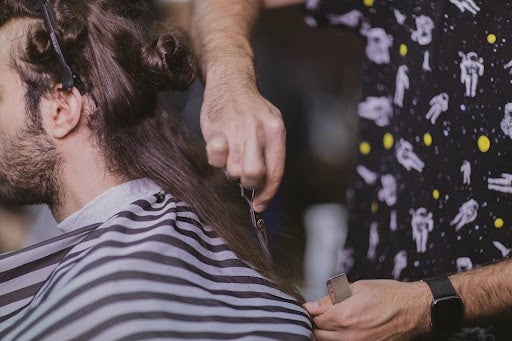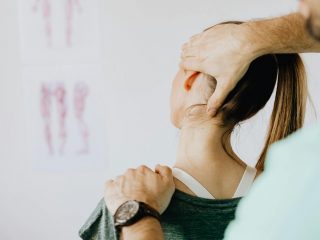If you’re wondering about the drugs that can cause hair loss, this guide will be helpful.
It is well-known that antibiotics have side effects such as vomiting, loss of appetite, and diarrhea, but the negative effect of causing hair loss is rarely known. Antibiotics refer to medicines that stop or hinder the growth of bacteria. Although they are effective in treating a number of bacterial infections, we need to pay attention to their negative effects.
Hairbro is here to help you become aware of the link between antibiotics and hair loss and tell you the things you can do to deal with hair loss as a result of antibiotics.
The Link between Antibiotics and Hair Loss
To start with, what is the link between antibiotics and hair loss?
Like the other parts of our body, hair relies on the intake of nutrients such as vitamin B, vitamin C, vitamin D, vitamin E, iron, zinc, and protein to keep healthy. For example, biotin is one of the well-known B vitamins that are responsible for promoting hair growth.
Antibiotics can cause a decrease in vitamin B and hemoglobin levels. Hemoglobin is responsible for carrying oxygen for the growth and repair of cells in our body, thereby facilitating hair growth. As a result of antibiotic taking, deficiencies of vitamin B and hemoglobin could lead to hair loss, which has been proven scientifically.
What are the Common Antibiotics that Cause Hair Loss?
There are various types of antibiotics and the common antibiotics that could cause hair loos include penicillin, erythromycin and cephalexin.
Penicillins are a group of drugs that have the function of attacking a variety of bacteria and have been widely used across the world. Nevertheless, penicillins have many side effects, including most common side effects such as diarrhea, nausea and vomiting and severe side effects such as severe skin rash, seizure and hair loss.
Erythromycin is commonly prescribed to treat bacterial infections such as ear infection, chest infection and skin infection. Like penicillins, erythromycins also have both common and serious side effects: common side effects include vomiting and diarrhea, and severe side effects are such as liver problems, chest pain and palpitations and likewise hair loss.
Cephalexin is another common antibiotic that is widely prescribed to treat such bacterial infections as ear infection, skin infection, respiratory infection and urinary tract infection. Common side effects caused by Cephalexin include dizziness, diarrhea and headache, and severe side effects include jaundice, unusual bleeding and hair loss.
Will Hair Grow Back If You have to Take Antibiotics
The good news is that hair loss resulting from medications is temporary rather than permanent, so hair loss resulting from antibiotics taking usually ceases after a person stops taking antibiotics. But it should be noted that you have to consult your doctor if you want to stop taking antibiotics. It usually takes up to 3-6 months to achieve hair regrowth, but the period varies from person to person.
What can You Do to Deal with Hair Loss as a Result of Antibiotics?
Taking antibiotics does not cause everyone to suffer from hair loss, but if you have the issue, it is essential to talk to your doctor timely. If taking antibiotics is the cause of your hair loss, your doctor can decide whether to change or discontinue the antibiotics treatment.
It should be noted that hair thinning could be caused by various diseases such as autoimmune diseases. According to the Autoimmune Registry, a non-profit organization which is committed to offering a database for patients suffering from autoimmune diseases, the number of American people who suffer from autoimmune diseases is 14.7-23.5 million.
Hair loss is one of the major symptoms of autoimmune diseases, and common autoimmune diseases include alopecia areata, lupus and Graves’ disease. If hair thinning is detected, you should see a doctor to find the cause and receive timely treatment. It is suggested that you should see a doctor one or two weeks after identifying hair loss.
However, there are some people who have to take antibiotics to combat diseases, especially cancer patients. Wearing a non-surgical hair replacement system is an ideal option for people who suffer from hair loss resulting from taking antibiotics for fighting diseases.






















